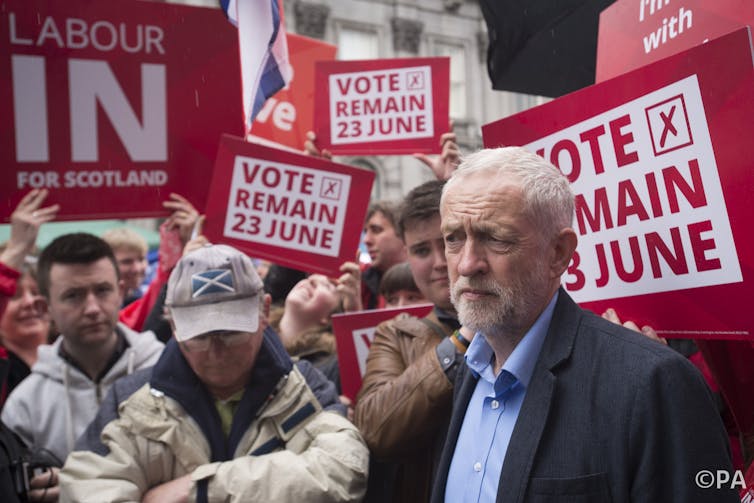Gordon Brown’s intervention in the EU referendum debate on behalf of the Remain camp was long overdue. The campaign has come to be seen as a sort of Dave and Boris show – a blue-on-blue battle for the Conservative soul.
Fresh on the heels of his Scottish referendum success, the former Prime Minister has produced a document outlining how Britain can make a positive contribution to reforming the EU. It’s a welcome change from trying to frighten people into voting to remain in the EU.
It is true that Brown has chosen some curious examples of European successes so far on the campaign trail – you don’t, for example, appeal to Brexiters by talking about how active the EU is on human rights issues or enlarging the union to more countries. But some of his points have a good chance of resonating.
It is particularly welcome to hear him speak of how Britain can be a leader in Europe and of how Europe can lead in the world. It has shown its potential in the financial crisis and the Paris climate change talks.
Brown is calling for Britain to take its European Union Presidency in 2017 seriously, and to commit to creating jobs from within Europe. He wants to see reforms to European energy and environmental policy and action on tax havens. All told, he is providing the bigger picture aspiration that has so far been strikingly absent in the referendum debate.
Making up for lost time
Brown’s call for action is a useful reminder that this should be a debate about the UK’s standing in Europe and the world. It is ultimately a stark choice between isolationism and continuing to be a strong international player.
“Too little, too late”, critics might argue. They might also point out the conflicting messages being sent out by the Remain camp. Brown’s internationalist view is at odds with David Cameron’s renegotiated deal safeguarding the UK’s “special status” in the EU, which boils down to a series of exemptions from some fairly important EU rules. Then, of course, there is Jeremy Corbyn, who rates his passion for the EU at a miserable seven (or maybe seven-and-a-half) out of ten.

If you are still undecided about how to vote, how do you reconcile all this? This is an important point, because mobilising undecided voters will be vital.
Others might see Brown’s approach as a desperate effort to appeal to post-imperialist – chauvinistic – visions of continuing British grandeur. We can look to the Scottish and Greek referendums for guidance on this. In both cases, ultra-patriotic rhetoric proved deeply appealing to voters.
Against this backdrop, and with only days to go, can Gordon Brown realistically hope to reverse the damage inflicted by the many years of Conservative party (in concert with UKIP and tabloid media) scapegoating the EU?
Labour has sat on the fence for a dangerously long time but if Brown does believe in the vision he is peddling, there are valuable lines of argument to develop.
From the economy, to law, to free movement and culture, Britain has contributed hugely to what Europe represents today. It is among the countries with the highest number of citizens living in another EU country (the government estimate is approximately 2m people). The City of London is the economic centre of Europe. British corporate law rules and practice have influenced the shape of EU regulatory regimes for the protection of shareholders and the prevention of market abuse.
The European Court of Human Rights (ECtHR) often draws upon decisions of the UK Supreme Court. Many protections for EU citizens as consumers have been modelled on British legislation. Legal aid, fair trial guarantees and protections for defendants when they are arrested provide inspiration for EU legislation. British intelligence agencies are highly relied upon in the common fight against terrorism and organised crime in Europe. British universities attract some of the best talent from Europe and produce a critically important volume of research, being among the largest recipients of research funding in the EU.
The list is endless. It highlights how much Britain already leads in Europe, providing a refreshing alternative to rhetoric about bullying Brussels. It might not be too late for voters to be persuaded about the benefits of staying in the EU.

